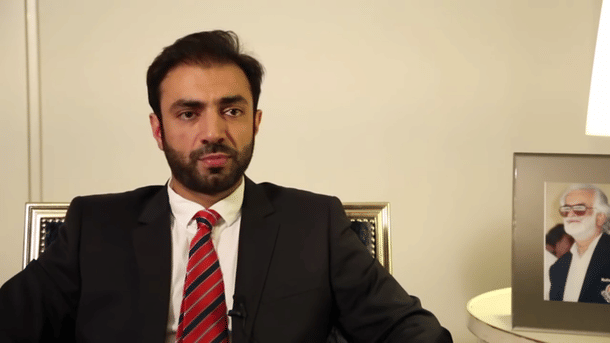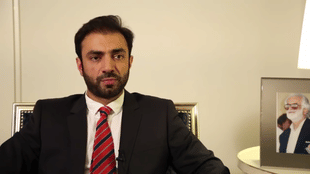Politics
It’s Not Only About Granting Asylum To Bugti; It’s Also About The Message That We Would Send
Rakesh Kr Sinha
Sep 24, 2016, 12:45 PM | Updated 12:45 PM IST
Save & read from anywhere!
Bookmark stories for easy access on any device or the Swarajya app.


The Indian media is abuzz with the news of Baloch leader Brahamdagh Bugti seeking political asylum in India . Home Ministry officials have confirmed that they have received Brahamdagh Bugti’s application for political asylum and it is under examination. Brahamdagh Bugti had applied for asylum in the Indian consulate in Geneva and the application was subsequently forwarded to the Ministry of External Affairs which, in turn, sent it to the Home Ministry. Brahamdagh Bugti is presently living in Switzerland but is not allowed to carry out political activities. In case he gets political asylum here, it will be seen as diplomatic and strategic support to the Balochistan movement by India.
Asylum is the diplomatic action of a State giving shelter and active protection to a political refugee from another state. The United Nations High Commissioner for Refugees (UNHCR) says “asylum seekers are individuals who have sought international protection and whose claims for refugee status have not yet been determined, irrespective of when they may have been lodged”. Article 14 of the Universal Declaration of Human Rights says “everyone has a right to seek and enjoy other countries’ asylum from prosecution”. But this declaration does not enjoin upon the individual the “right to receive asylum”.
As such, everyone has the right to seek asylum yet there is no corresponding duty of states to grant asylum. This provision only recognises the asylum under the international law. The General Assembly, in 1967, unanimously adopted a declaration of territorial asylum calling upon the states not to reject a person seeking asylum at the frontiers .
The 1951 Geneva Convention relating to the Status of Refugees said that “asylum seekers must show that they have a well-founded fear of persecution due to their race, religion, nationality, political opinion or membership of a particular social group, and are unable or unwilling to seek protection from the authorities in their own country”. The protocol, based on this convention, related to the status of refugees entered into the force in 1967. Though India is not a signatory to the protocols and conventions governing asylum, it has a sort of an informal refugee regime broadly in line with international instruments. As per data released by UNHCR in 2015, there were 2,07,861 persons of concern in India of whom 2,01,281 were refugees and 6,480 were asylum seekers. The Government of India decides on granting asylum on an ad hoc and case-to-case basis.
The case of Brahamdagh Bugti seeking asylum in India falls under the category of “territorial asylum”. This can be granted by a State in its own territory and is hailed as an attribute of the territorial sovereignty of the state. There will be objections from Pakistan as the right to grant asylum is somewhat restricted through other multilateral treaties.
For instance, the Convention on Territorial Asylum (1945) in Article 1 lays down the states right to grant asylum “without giving rise to complaint by any other state”. But India can uphold the moral ground as it did in 1971 while granting shelter to refugees from Bangladesh. The situation remains the same.
Asylum can be denied only in the case of prosecution genuinely arising from the non- political crimes or from the acts contrary to the purposes and principles of United Nations. Brahamdagh Bugti has done nothing against the principles of United Nations. It is rather the Pakistani regime which is guilty of violating those principles by committing worse atrocities in Balochistan. The case of Brahamdagh Bugti meets all legal requirements of international protocols and declarations and, thus, is fit to be granted territorial asylum from the perspective of International Law.
This public consensus on what types of asylum-seekers to accept has an important bearing on such decision making. The outcome of such decisions illuminate both challenges and opportunities for policymakers who not only have to meet their legal responsibilities to protect refugees but also have to simultaneously respect the public will. This dilemma is engulfing Europe in the context of Syrian refugees. The public opinion in India seems to be generally in favour of granting asylum to Brahamdagh Bugti. India must now shed a part of its historical hesitations and step onto the path of more assertive diplomacy. Granting of asylum to Brahamdagh Bugti would be one such step.
Rakesh Kr Sinha has done M.A. in International Politics and M.Phil. in American Studies from JNU, New Delhi and a LL.B. from Faculty of Law, Delhi University. He joined Government of India Civil Services Allied (CISF:91) and voluntarily retired from the post of DlG in the year 2014 . He is an Associate Member of Institute of Defence Studies and Analyses (IDSA). He is a freelance writer, speaker and a blogger on the subjects of International, Political and Strategic Affairs. Presently he is appointed as the Special Advisor to the Chief Minister, Govt of NCT of Delhi.





